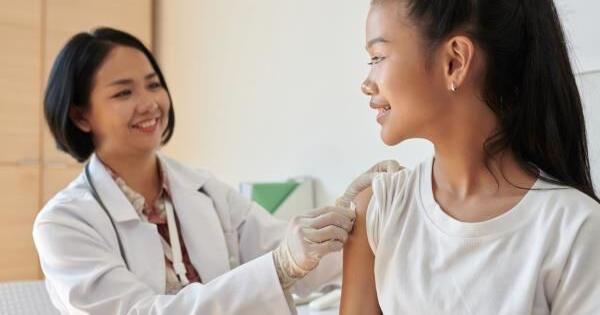
As the back-to-school season approaches, families are prioritizing preparations that extend beyond merely purchasing school supplies. Among the critical items on their checklists is ensuring that children and adolescents, ages 7 to 18, are up to date on their immunizations. Consulting with their pediatrician or family doctor is an essential step in this process, as timely vaccinations are instrumental in equipping young individuals with a robust defense against a range of infectious diseases prevalent during the school year.
Immunizations play a vital role in public health, significantly contributing to the prevention of diseases that can have severe, long-lasting consequences. Diseases such as measles, mumps, rubella, and whooping cough, which may seem like relics of the past, have seen resurgences in recent years, particularly in communities where vaccination rates have dropped. These diseases can lead to serious health complications, including infertility, muscle paralysis, brain damage, blindness, deafness, and cancer.
Experts emphasize the importance of vaccines and advocate for comprehensive immunization schedules established by health authorities. The Centers for Disease Control and Prevention (CDC) recommends specific vaccines for school-age children and adolescents, which may include DTaP (Diphtheria, Tetanus, and Pertussis), IPV (Inactivated Poliovirus), MMR (Measles, Mumps, and Rubella), and HPV (Human Papillomavirus). Each vaccination serves as a critical tool in protecting individual health and promoting community immunity, also known as herd immunity, which protects those who cannot be vaccinated due to medical reasons.
In addition to the foundational vaccines, the beginning of a new school year is an opportune moment for families to discuss any additional vaccinations that may be recommended by their healthcare providers. Such discussions may also encompass vital information regarding routine health checkups, screenings, and mental health assessments, which are particularly important as children transition back into academic life.
As students return to classrooms across the nation, parents play a crucial role in safeguarding their children’s health. By prioritizing immunization, they are not only enhancing their child’s individual health but also contributing to the collective well-being of the wider community. Thus, scheduling an appointment with a healthcare provider should be an integral part of back-to-school preparations, ensuring that children are protected as they embark on another academic year.

